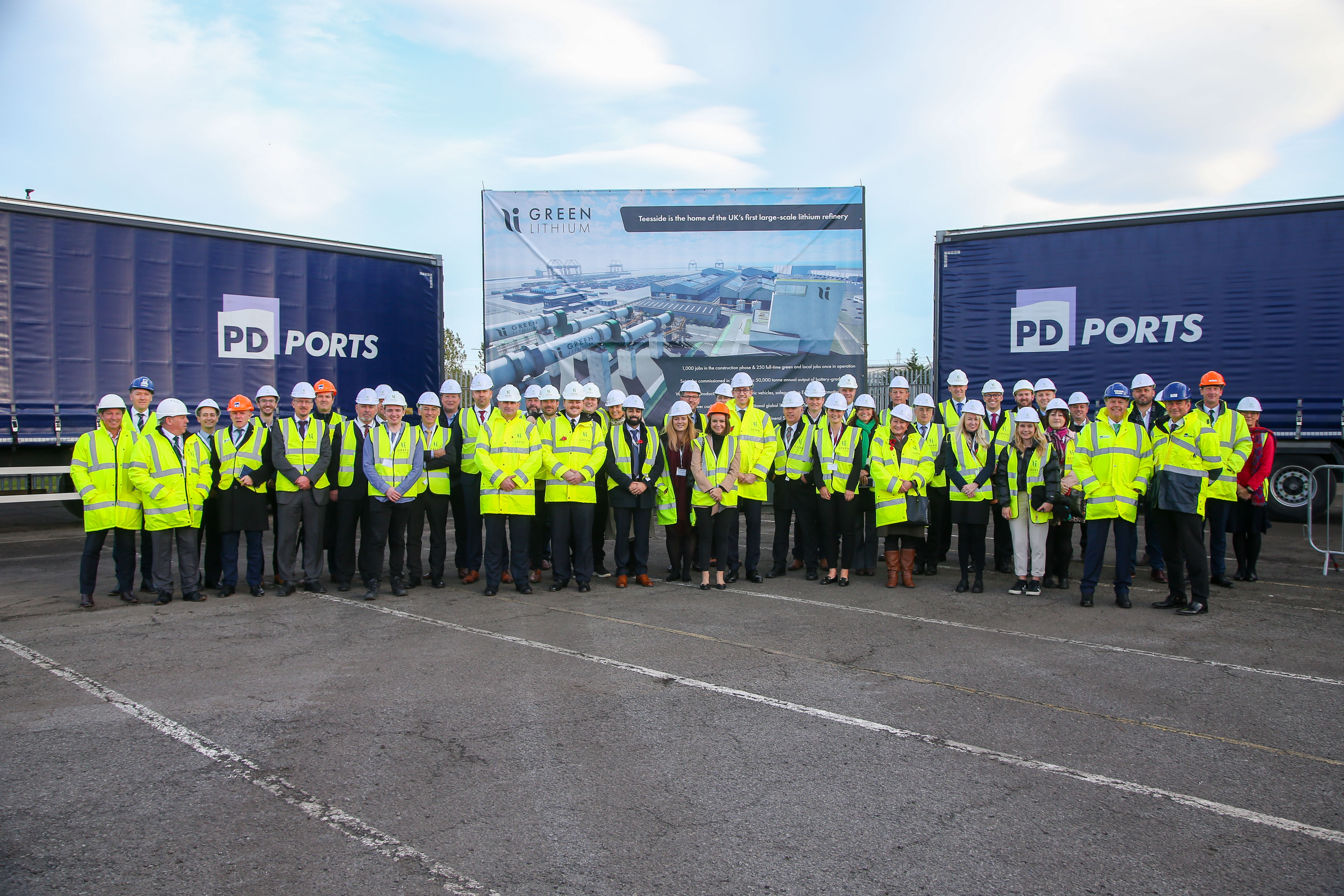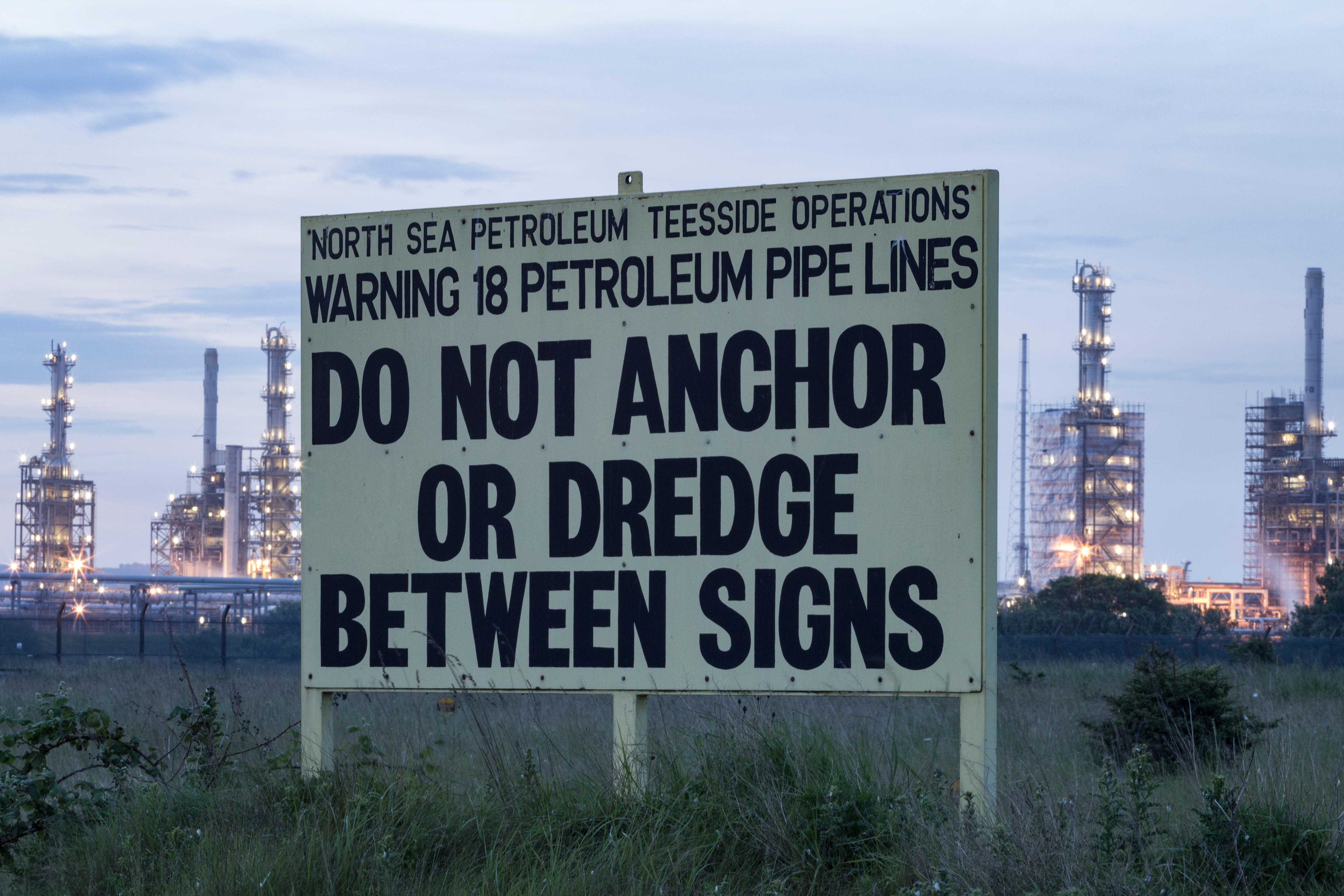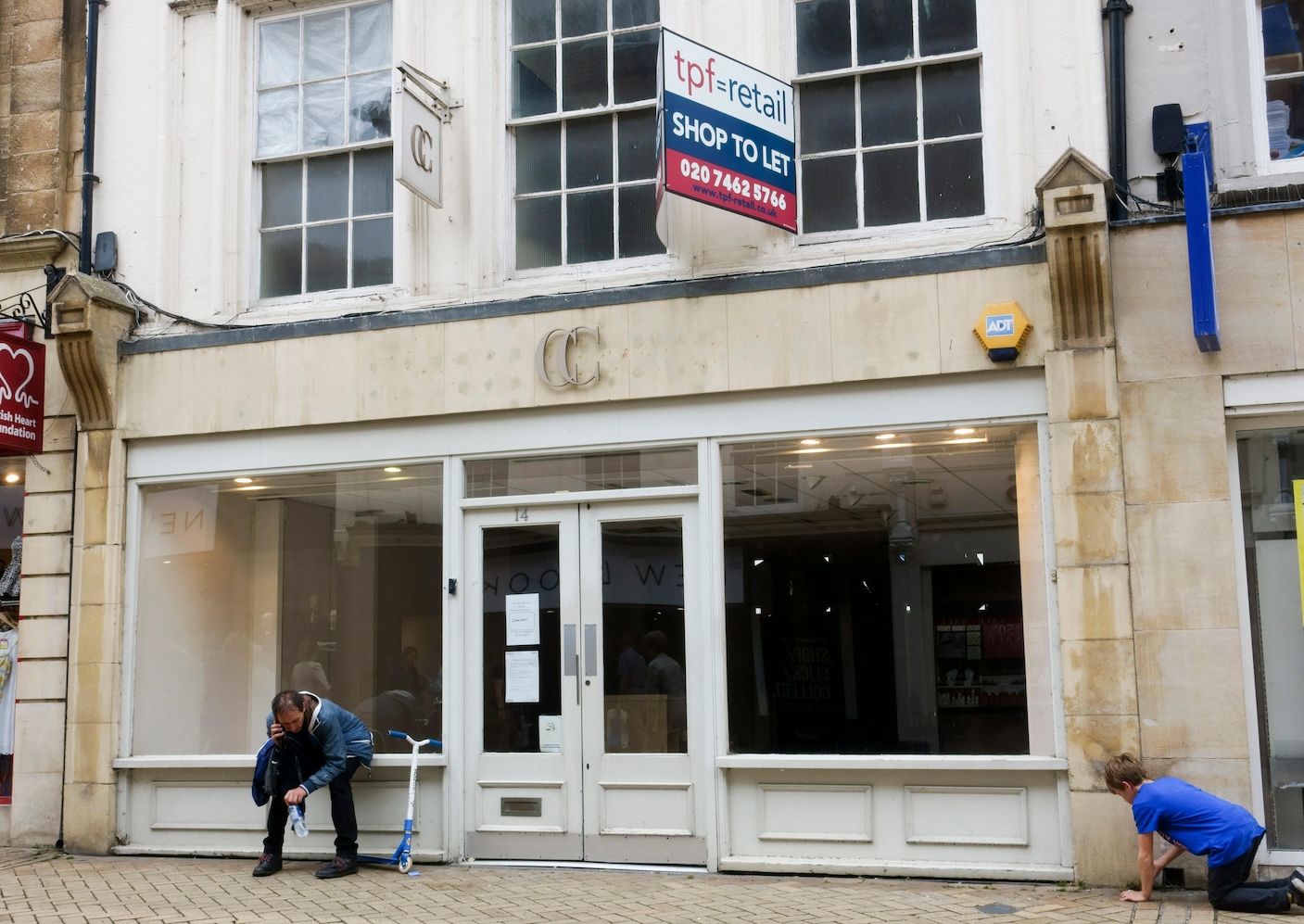Exploring Teesside's critical role in lithium processing
How, and why, Teesside is speaking the language of lithium production.
“It used to be said in the oil and gas industry that you could hear a Scottish accent anywhere you went in the world. What I want to see is anywhere you go in the world, to listen to hydrogen and carbon capture, you’re going to hear a Teesside accent. That’s the ambition for us.”
Those were the words of Tees Valley mayor Ben Houchen talking about the new industries developing across the region. And they could just as easily be applied to lithium production as Britain’s very first refinery ramps up to produce the highly prized component essential for electric car batteries at Tees Port.
Founder of that refinery, Richard Taylor of Green Lithium, picks up the theme, telling The Teesside Lead: “It’s like you always find a Cornishman in a mine! We will be employing and training the people in Teesside that go off to work all over.”
Taylor, a geologist by training, has moved out of the oil and gas industry to create a plant which will create enough lithium hydroxide for 1m electric vehicles (EVs) each year when the plant is complete.
Electric vehicles are seen as a fundamental part in the effort to reduce carbon emissions meaning increasing demand for EV batteries. The UK and EU markets alone will require over 800,000 tonnes of refined lithium a year.
So why Teesside?
“We looked at the UK and where we had lithium in rocks but they were too low grade, “ says Taylor. “We shouldn’t be mining, Australia is already doing that, but we’re playing into the North East’s strength for processing. There’s 100 years of steel and chemical processing here.”
The plant is expected to create 1,000 jobs during the construction phase and work is already underway at the 52 acre site at Teesport.
When planning permission was announced last summer, Nusrat Ghani, business and trade minister heralded the plant as critical for the UK’s automotive and green energy industries.
She said: “Green Lithium’s plans for a refinery in Teesside highlight the UK as a strategic location for refining and mid-stream manufacturing, reinforcing the UK as a leading player in the global race for critical minerals and supporting the aims of our Critical Minerals Strategy.”
But to get to the point of production during 2024 requires a worldwide set of processes to be put in place.
The other side of the planet
In simple terms the rock spodumene gets mined in Australia then transported to the deep water docks of TeesPort where it will be refined to lithium hydroxide before being exported to Europe for car production.
According to Investing News, most of Australia's lithium resources are located in Western Australia, where there are several robust hard-rock deposits. A typical lithium deposit in Australia will have a grade of between 1 and 3 percent lithium oxide.
Lithium mined in Australia comes mainly from spodumene, though it can be found in other minerals as well, such as lepidolite. In 2022, Australia reported a total output of 61,000 tonnes of lithium, above its 2021 total of 55,300 tonnes. The country’s lithium production numbers first began spiking around 2018 thanks to accelerating output from two spodumene projects launched in 2017.
As the FT reported, there’s currently a land grab for mining rights in the so-called ‘lithium corridor’ of Western Australia which started last autumn and has seen multi billion dollar deals for the rights to supply the likes of Tesla and Ford.
What’s the environmental impact?
Gavin Mudd associate professor with Melbourne's RMIT University and the chair of the Mineral Policy Institute, an independent organisation that monitors Australia's mining industry, told the BBC that misinformation and confusion about lithium mining is common.
"If you're talking about hard-rock lithium mining, the environmental impact is pretty much the same as any other comparable mining operation.

A picture of the Green Lithium team and partners on the site at PD Ports last year for the site announcement.
"Lithium is actually a very common mineral. It's found all over the place but historically we haven't worried about mining it."
But environmentalists do have concerns. In its report to the EU, Friends of the Earth accuses the mining industries of ‘green washing’ and instead urges a move to lower consumption.
“Large mining companies and governments are, however, using the fact that certain metals and minerals are key for green technologies, to greenwash the metal mining industry in general, promoting the nonsensical concept of ‘green mining’.
“Metal extraction and processing is associated with serious and significant environmental impacts, including toxic effects on humans and ecosystems.”
Troy Adams of Global Road Technology is one of those who has highlighted the dangers for human health at the mines: “Lithium mining generates inhalable and respirable dust particles. Transportation, stockpiling, grinding, and ore processing which involves crushing and screening generate dust. Dust generated during crushing and screening exposes lithium mine workers to silica. Inhaled silica can settle in the alveolar region of the lungs. This triggers conditions such as silicosis and lung cancer in the long term.”
Back at the Teesside plant, the founders believe they can address environmental concerns by looking at the impacts across the refinery processes and have ambitious plans for the plant.
Addressing environmental concerns
Laying out their intentions on the website, they say the plant will be low-carbon and different to the conventional resource-intensive and carbon-intensive processes.
“Our refining process will be powered by renewable energy and we have plans to incorporate carbon capture technology. Alongside these measures, we are currently evaluating options to incorporate recycled battery materials as input to the refining process. It's our goal to maximise product circularity.”
Green Lithium CEO Sean Sargent is certainly someone who knows his way around challenging environmental issues having previously been involved in nuclear decommissioning.
He told The Teesside Lead he felt it was a “moral issue” to ensure any energy production takes account of the waste produced. He explained how the processes being developed at the Teesside plant will differ from those accepted as an industry standard.
The new process will still crush and bake the raw spodumene at 2012°F (1100°C). But instead of cooling and roasting again with sulfuric acid, Green Lithium will use quickline and mix in soda ash.
“The energy footprint is about 25% smaller than an acid leach process. So straightaway you've reduced the carbon footprint by about 5%. You can then look at using things like hydrogen and carbon capture to really start to eat into the next 50% of the carbon footprint. So instead of using natural gas for those rotary kiln ovens that do that initial bake, you can use hydrogen to do it and then I get some technical challenges which need to be solved.
“That's all stuff that Green Lithium is targeting. By moving to hydrogen away from natural gas, and other measures, such as using renewable electricity, and just trying to decarbonize the process in any way we can, we think we get the carbon footprint down to about a minimum of about 25% of that acid leach process.”
Next steps
Processing won’t start on Teesside until next year when the current workforce will be increased to between 20 and 40 people as part of the first ‘scale up plant’.
Sargent says this will bring much needed employment to Teesside: “The focus very much now is on recruiting people locally to Teesside. We've already got five or six employees in Teesside. I think to operate the scale up plant, we're looking at the numbers required there, but it's going to be of the order of 20 to 40 people to operate that plant. And then when we get to the full scale plant, it'd be more than 200 people to provide the 24/7 cover to operate the full scale plant.
“When we come to commission the first line of the full scale plant, we've got that skill set already and we think it's a relatively simple task in Teesside, because the people who process, the engineers who've come from steelmaking Industries, a lot of those skills are identical to the ones we need. What we need to do is just fine tune those skills into the very specific capabilities required for lithium.”
- More information can be found at the FAQs produced by Green Lithium here.
The Teesside Lead is now on Substack.
Become a Member, and get our most groundbreaking content first. Become a Founder, and join the newsroom’s internal conversation - meet the writers, the editors and more.





